|
|
Is Beyond Meat sustainable?
Beyond Meat is a plant-based meat producer based out of California. Within a decade, the protein maker evolved from savvy startup to a multi-billion dollar publicly traded company.
Beyond Meat says they are “making plant-based meat that is better for people and the planet”. Let’s find out if they meet the SR standard.
Busy? Try the speed read.
The scoop: Is Beyond Meat sustainable? The plant-based protein maker has turned veganism mainstream. But they need to be more transparent.
Some talking points:
- Beyond Meat packaging needs work. Their flagship product (Beyond Burger) is not compostable.
- Beyond Meat uses 99% less water, 93% less land, 90% fewer greenhouse gases, and 46% less energy than a traditional beef burger.
- Pea protein is a sustainable protein choice, but they should prioritize sustainable legume farming > organic farming.
- A report from S&P Global Market Intelligence in 2018 criticized Beyond Meat’s transparency around sustainability reporting, giving them a 0%. Tyson Foods got a 98%.
Bottom line: Beyond Meat needs to revisit its supply chain and farming model. Still, they are on an upward trajectory for both profitability and sustainability. Quality company that just needs to keep improving. Beyond Meat is on its way to being sustainable.
Dig deeper → 6 min
Founder story
Beyond Meat was founded in 2009 by Ethan Brown under its original name “Savage River Inc”.
Brown connected with University of Missouri professors Fu-hung Hsieh and Harold Huff, who had already been working on creating a meat substitute in their lab, to launch a plant-based meat.
In 2013, the food chemists finally created a market viable chicken-less chicken product. It gained some media attention, but never gained serious traction.
Here’s a solid interview Ethan Brown had with Plant Based News.
A year later, Beyond Meat launched their flagship product: the Beyond Burger. They never looked back, getting serious attention from big Venture firms. Today, the brand is valued over $11 billion.
Beyond Meat was the first meat alternative to hit the mainstream. It has become a cultural icon in the plant-based community with major investors (and ambassadors) like Shaquille O’Neal and Kyrie Irving.
But if Beyond Meat is sustainable, it has to be more than just trendy.
Industry standard and company size
I break up food and beverage as an industry into two parts: legacy brands (think Kraft and Oscar Meyer) and then… everyone else.
The food and beverage space (outside of legacy brands) is quite competitive for sustainability standards. As such, Beyond Meat should be held to a higher standard.
$3 billion IPOs
Once a California startup, Beyond Meat is now a multi-billion dollar publicly traded company. They had a $3 billion IPO in 2019. That valuation jumped to $11 billion in 2020.
With great size, comes great responsibility. Beyond Meat has two production facilities, one in California and one in Missouri. They also have a new 26,000-square foot research lab based out of their El Segundo, California location with over 100 employees.
With over fifty international markets, Beyond Meat claims to have 27,000 different distribution points in the United States alone. This sort of production level requires careful planning and stringent operational procedures to hit sustainability standards.
Ingredient assessment
Beyond burger
A Beyond burger has slightly different ingredients for retail and food service. But its core ingredients include pea protein isolate, rice protein, mung bean protein, canola oil, coconut oil, potato starch, apple extract, sunflower lecithin, and pomegranate powder.
Quick food tip: When reading a label, look for organic whole protein. It’s always healthier than protein isolate.
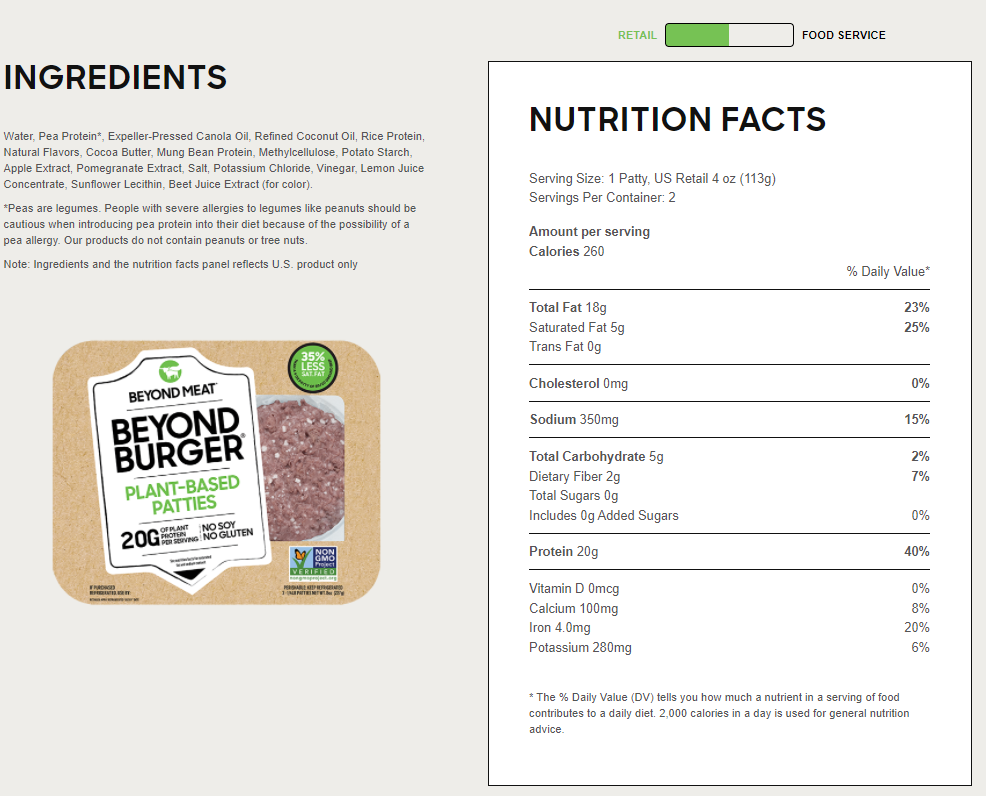
The Burger gets the “bleed” effect using red beet juice. The ingredients are non-GMO-certified. However, based on the number of ingredients and the rigorous process needed to create a Beyond patty, is classified as “ultra-processed’ according to NOVA.
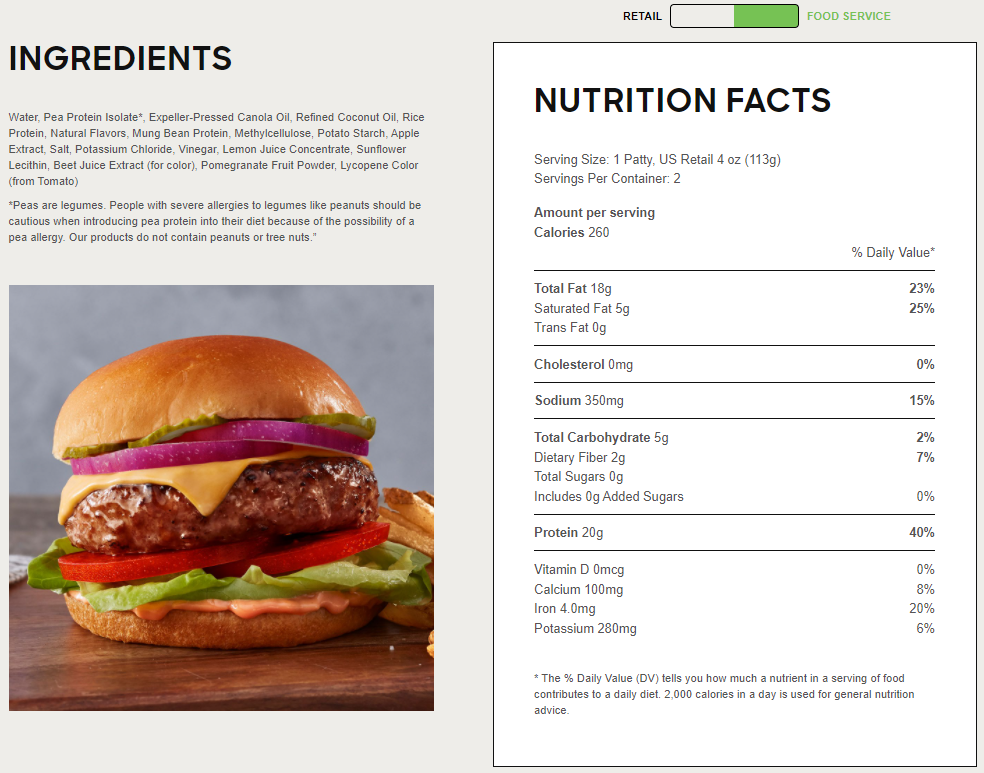
Each patty contains 20g of protein and 18g of fat (5g saturated fat). The protein-fat content compares to a traditional beef patty, but Beyond burgers have a higher salt count.
The nutritional value of a Beyond burger may depend on where it is being served, given the different preparation methods.
Beyond sausage
They used to have Beyond chicken strips, but they discontinued in 2019.
Beyond sausage is Beyond Meat’s other main product. It’s ingredients and process are pretty similar to the beef alternative, with a taste more comparable to pork sausage.
Is Beyond Meat healthy?
As a vegan, I tend to avoid faux meat and processed foods in my daily diet. For me, Beyond Meat is my ‘act socially acceptable’ go-to.
What do I mean? When I go out with friends who don’t give a shit what they eat, I can still grab a Beyond burger and hardly anyone notices that I’m a tree-hugger at a steakhouse or fast food joint. When I order a salad, though, all hell breaks loose.
Health-wise, I’d compare eating Beyond Meat to eating a burger. You don’t want to eat it everyday, but once in a while won’t hurt you.
Supply chain, agriculture and trade
As mentioned, Beyond Meat has a massive global supply chain. Even if they are saving animal-lives, a leaky production process can carry serious environmental implications and offset any progress.
TLDR; Beyond Meat is sustainable only if its supply chain is.
Given their #1 ingredient is pea protein, let’s take a closer look at how peas are farmed. The good news? Pea protein is faaar more sustainable than beef (like, it’s not even close).
Sustainable farming > Organic farming
Organic farming certainly has benefits for the end-user, but for certain crops like legumes, it doesn’t necessarily mean it is better for the environment.
In fact, an organic certification puts restrictions on fertilizer use for peas, which need careful treatment to stay healthy and consumable. So, sustainable farming practices are more important than organic in this situation. And Beyond hasn’t thrown that up that sustainable farming designation yet.
Beyond Meat also uses a considerable amount of canola and coconut oil. Like peas, canola grows primarily in the US and Canada. Beyond Meat coconuts grow in Malaysia and Indonesia.
Compared to a competing product like palm oil, coconut oil does not require heavy land use, i.e. no deforestation. So what really matters for evaluating the sustainability of coconuts? Ethically-sourced.
Beyond Meat does not carry 1) fair-trade 2) organic certs for its coconut/canola oil. Not easy to do, but much recommended.
Note: Beyond Meat received a Champion of the Earth designation from the United Nations for its sustainability efforts. I’m not in love with this award (a lot of corporate interest involved), but they are innovating the space.
Packaging
Let’s take a closer look at Beyond Meat packaging. This is how much material goes into one Beyond Burger you may find on the supermarket shelf.
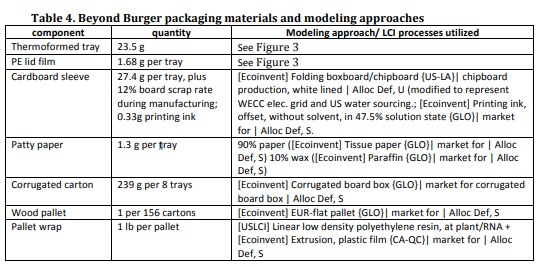
Beyond Meat swapped out plastic packaging for a compostable tray on its sausage line – they still use a thin layer of polyethylene for a label.
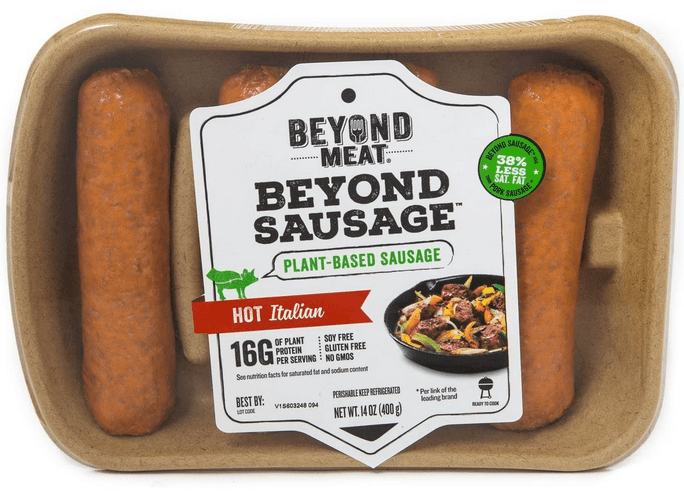
The Beyond Burger still uses plastic trays, although their study with University of Michigan recommended a switch to post-consumer recycled polypropylene.
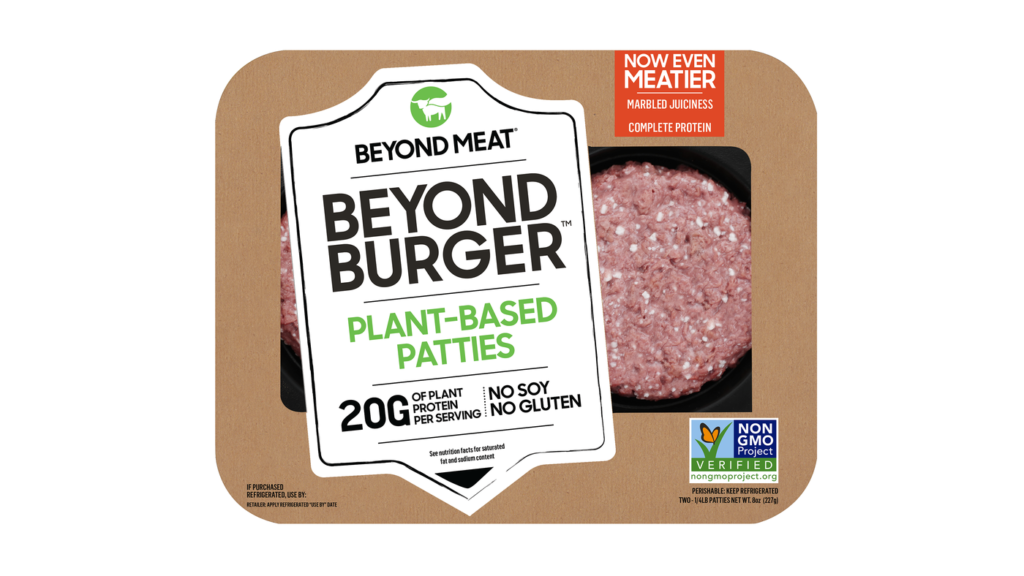
Transparency and ethics
Over 130 million land animals are sent to the slaughterhouse everyday. By providing plant-based substitutes for meat on a mass scale, Beyond Meat is changing the protein game. That doesn’t go unnoticed.
Still, Beyond Meat lacks in environmental impact disclosures. Perhaps they are the most sustainable company in the world, but it is hard for us to know, because they don’t tell us much.
An analysis by Trucost (an S&P Global Market Intelligence spin-off) gave Beyond Meat a 0% on its weighted environmental disclosure ratio. For comparison, traditional meat companies Tyson Food and Hormel received a 98% and 99% ratio, respectively.
Keep in mind this does not make Tyson Foods more sustainable, like not even close, but it does mean that we know more about the environmental impact of their operations and supply chain than we do about Beyond Meat.

Strangely enough, Tyson Foods was an early investor in Beyond Meats. They exited in 2019 before the IPO. Tyson is a pretty ugly company in the world of sustainability and ethics. Not going to knock Beyond for that relationship, but its important to contextualize their company journey.
Note: The Trucost analysis looked at company reporting in 2018 to determine its ratio.
Notably, Beyond Meat partnered with University of Michigan to quantify the environmental impact of the Beyond Burger. But the report focused more on what Beyond Meat is keeping out of the market, rather than what it is putting in.
As part of its sustainability analysis, Beyond Meat determined their burger uses 99% less water, 93% less land, 90% fewer greenhouse gases, and 46% less energy than a traditional beef burger.
Ongoing evaluation
Beyond Meat is not ready to sit back on their sustainability goals. As a publicly traded company, Beyond needs better company reporting. And I’m sure that will come with stakeholder pressure / public cooldown from COVID over the next year or so.
A lack of sustainability reporting doesn’t always equate to poor sustainability, and in this case I think Beyond Meat is actually doing a great job. We just need more transparency to standardize the industry as a whole.
Is Beyond Meat sustainable?
Beyond Meat is not perfect. But given their size, it is near impossible to be. Their product tastes great. It is not meant to be the healthiest option, and it is a great treat/alternative for vegans looking to take a break from careful diets… or better yet, meat-eaters curious to try something new.
Their impact on animal agriculture cannot be understated. There is room for improvement. In Corporate America, there always is. But they got my seal of approval. Beyond Meat is on its way to sustainable.
Did you enjoy this post? Check out our full list of reviews for ‘Better brands’ like Lululemon and Starbucks.
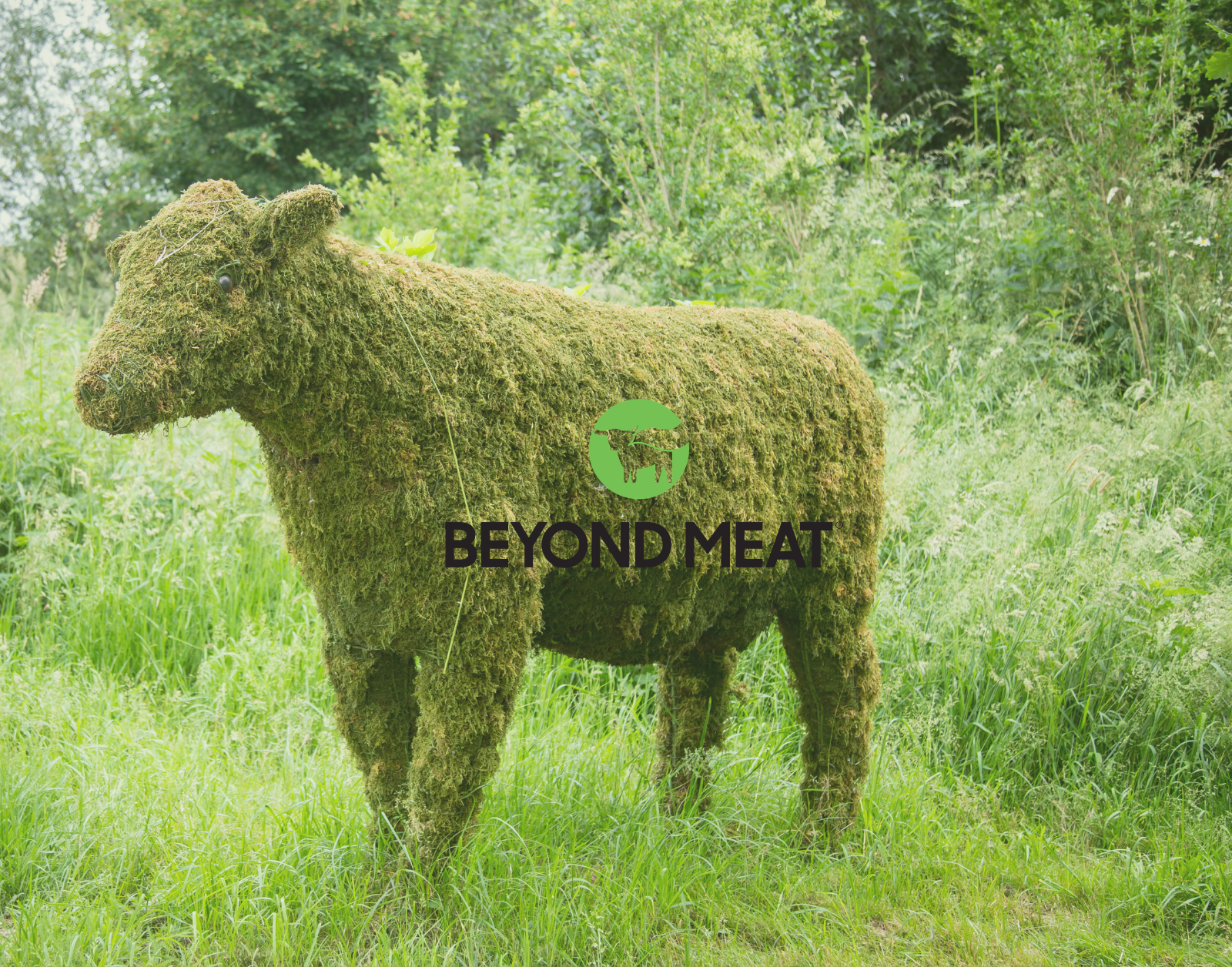






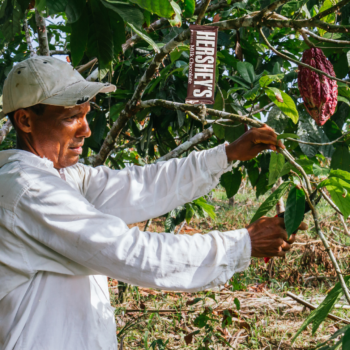
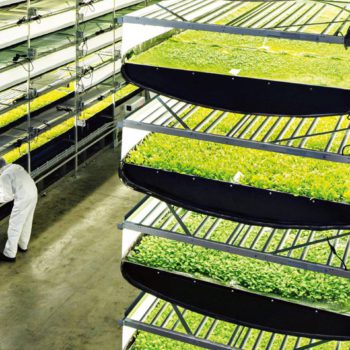




No Comments